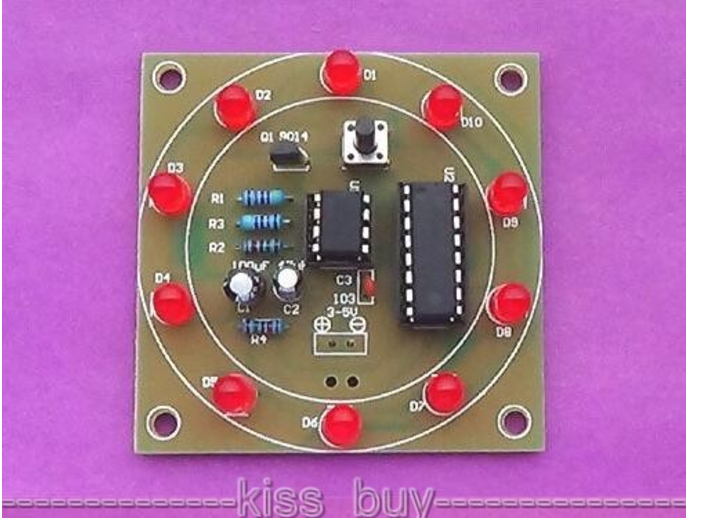Hands-On Engineering Activities
Instructor: Dr. Farid Farahmand
________________________
Activitie # A:
Objective: Learn basic electronics and some soldering skills Learning Goals: In this lab you become familiar with soldering nd some basic electronic skill.
Procedure: Following the following:
- This is what we build: See here for more kits.

Activitie # B:
Objective: Learn about how you consume electrical Enery
Learning Goals: In this lab you become familiar with the following: phantom Load, ....
Procedure: Follow the steps below: What you learn:
- Receive your Kill-a-Watt form your instructor.
- Learn how to use Kill-a-Watt. (EM-Watt)
- Make your measurements fro different electrical devices: TV, ....
- Go to the Survey and enter your inputs.
- Click here to view a histogram of previous responses.
- Below are the average results of reported power consumptions (kW) in different typical household electrical devices:
- You can also use this link to see the results.
Activitie # C:
Objective: Learn about how Solar Energy Works
Learning Goals: In this lab you become familiar with
Procedure: See the experiment here.
Activitie # D:
Objective: Understanding Proximity Sensors and How to Identify the Position
Learning Goals: In this lab you become familiar with various roximity sensors including Ultrasonic, IR, Lidar, Radar, and other similar sonsors, We also learn about triangulation and your phone uses these sensors and concepts. We will use several actualsensors and applications on your phone.
Procedure: See the experiment here.
Activitie # E:
Objective: Learn about energy/water consumption.
Learning Goals: In this lab you become familiar with general concepts that impact our daily energy usage.
Procedure: Think about these questions:
- Which approach uses less energy to boil a glass of water: using stove, microwave, or water boiler?
- Which approach uses less water: wiping out the two semi-dirty plate wih napkins or waching them with soap? How much water does it take to make the knapkins?
-
In terms. Of energy which uses more energy using napkins to dry your hand or hot air blower?
- To keep coffee warm, better to use a coffee maker or water boiler?
- How much power does your router use? In a full day? What if you are constantly uploading and downloading? Does it matter?
- How much energy doe it take to generate one sheet of paper?
- How much water do you use per day?
-
How much trash do you geenrate per day? .
Activitie # F:
Objective: Learn about how we charge our cell phones.
Learning Goals: In this lab you become familiar with the battery system of your mobile devices and how they are charged.
Procedure: Measure the charging spead of your phone using the following devices:
- Your wall charger.
- Your Power bank.
- The Boost Kit
- How does a wireless charger work?